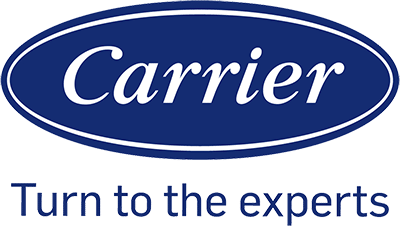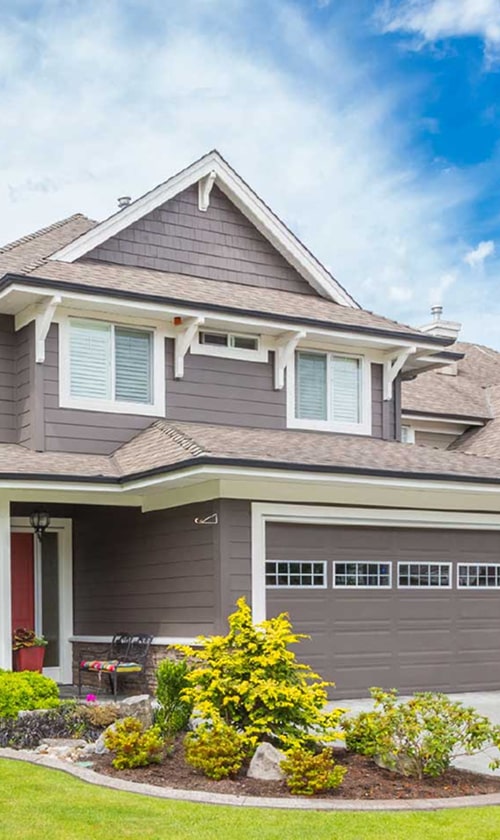Understanding HVAC System Efficiency

In optimizing HVAC systems for enhanced energy efficiency, regular maintenance and understanding key functional factors are crucial.
The Role of Maintenance in Energy Consumption
HVAC systems account for a significant portion of energy use within buildings. Through vigilant maintenance, these systems can run more efficiently, reducing overall energy consumption. For instance, replacing or cleaning air filters can improve airflow and system efficiency, while also protecting against dust and allergens. Additionally, checking refrigerant levels and ensuring they are at the manufacturer’s recommended levels is essential for optimal operation.
- Cleaning/Replacing Air Filters: Ensures unobstructed airflow
- Refrigerant Maintenance: Maintains cooling efficiency
Key Factors Influencing HVAC Efficiency
Several key factors determine the energy efficiency of an HVAC system. The Energy Efficiency Ratio (EER), a measure of the cooling output divided by power consumption, is a key indicator of system efficiency. Systems that are ENERGY STAR certified typically meet or exceed high-efficiency criteria, which can lead to lower energy bills and reduced energy use.
- Energy Efficiency Ratio (EER): Higher EER values signify more efficient units.
- ENERGY STAR Certification: Symbolizes industry-standard high efficiency.
Maintenance Strategies for Optimizing Performance

Optimal performance of HVAC systems hinges on regular and strategic maintenance, which ensures energy-efficient operation and reliability, while also contributing to cost savings.
Best Practices in HVAC Maintenance
When it comes to maintaining an HVAC system, adhering to the best practices is crucial for its efficiency and lifespan. Primarily, we should regularly replace filters to prevent clogging and overworking the system, thus preserving energy efficiency. Further, periodic inspections and repairs keep the system running smoothly, avoiding the costs associated with sudden breakdowns. It’s imperative to:
- Check and Replace Filters: Monthly checks and replacements of HVAC filters, if necessary, to maintain air flow and quality.
- Seal Ductwork: Ensure ducts are properly sealed to prevent loss of conditioned air and increased energy consumption.
- Calibrate Thermostats: Regularly checking thermostat settings to ensure the HVAC system heats and cools as efficiently as possible.
Proactive Maintenance and Remote Monitoring
Proactive maintenance, accompanied by remote monitoring, represents the next level of ensuring our HVAC systems are running at peak efficiency. Through remote monitoring, we can detect and address issues before they escalate into costly repairs. Implementing a proactive approach involves:
- Scheduled Inspections: Establishing a regular schedule for professional inspections, designed to preemptively identify and remedy potential issues.
- Real-Time Monitoring: Using advanced sensors and software to track the system’s performance and anticipate maintenance needs.
- Predictive Analysis: Leveraging collected data for predictive analysis, facilitating timely maintenance decisions that preempt system failures.
By integrating these strategies into our maintenance routine, we solidify the reliability and energy efficiency of the HVAC system, translating into tangible cost savings and an extended system lifespan.
Economic and Environmental Advantages

Regular maintenance of Heating, Ventilation, and Air Conditioning (HVAC) systems in commercial buildings is crucial for optimizing energy efficiency and ensuring sustainability. We will explore how these practices not only lead to significant cost savings but also contribute to a reduction in carbon emissions, aiding the battle against global warming.
Reducing Costs and Enhancing Sustainability
By adhering to routine maintenance schedules, we can prevent the energy inefficiency that often goes unnoticed in poorly maintained HVAC systems. In commercial spaces, energy costs account for a substantial portion of monthly expenses. Proactive maintenance can reduce energy bills by up to 40%. It’s not just about monetary savings; sustainable practices like these contribute to obtaining LEED (Leadership in Energy and Environmental Design) certification, which can increase a building’s value and attractiveness to eco-conscious tenants.
Key advantages include:
- Lower operational costs: Energy consumption decreases with well-maintained equipment.
- Extended equipment lifespan: Regular checks prevent wear and tear, further reducing financial outlays over time.
- LEED certification: Demonstrates a commitment to sustainability and can offer financial incentives like tax rebates.
Impact on Carbon Footprint and Global Warming
Maintenance of HVAC systems greatly impacts a commercial building’s carbon footprint. Efficient systems use less energy, leading to lower CO2 emissions. It’s a critical step towards aligning with the worldwide initiative to curb global warming. For example, transitioning to HVAC systems that run on renewable energy sources can lead to an even more pronounced decrease in carbon emissions, showcasing our role in fostering a healthier planet for future families.
To highlight the environmental impact:
- Reduced CO2 emissions: Regular maintenance ensures systems are not overworked, which can significantly cut down on carbon emissions.
- Support for renewable energy: Well-maintained systems can integrate more effectively with renewable energy sources, further decreasing reliance on fossil fuels.
Installation and Upgrades for Energy Conservation
When considering the advancement of HVAC system efficiency, the focus on selecting premier models and precise installation techniques is paramount.
Choosing Energy-Efficient HVAC Systems
Investing in energy-efficient HVAC systems is a pivotal step towards achieving energy conservation. These systems, marked by high Seasonal Energy Efficiency Ratios (SEER), not only reduce our utility bills but also contribute to a lower environmental footprint. We must prioritize features such as:
- Variable Speed Motors: These motors adjust the speed of air flow, providing more precise temperature control and energy savings.
- Programmable Thermostats: Integration of smart thermostats grants us the ability to tailor cooling and heating patterns, optimizing energy use.
- Quality Insulation: Superior insulation in HVAC units minimizes energy leakage, maintaining efficiency throughout the system’s lifecycle.
Influence of Installation on Energy Savings
Proper installation of our HVAC systems is as crucial as selecting energy-efficient models. Inefficient or incorrect installation can lead to increased energy use and costs. To ensure the best performance, we adhere to the following practices:
- Professional HVAC Technicians: We rely on certified HVAC professionals for installation, ensuring systems are correctly sized and installed for maximum energy savings.
- Ductwork Integrity: Secure and well-sealed ductwork is essential for efficient airflow and preventing energy losses.
- Regular Maintenance Checks: Periodic assessments by experts keep our systems running at their most efficient, identifying and rectifying any inefficiencies promptly.
By embracing top-notch installation practices and continual system upgrades, we secure substantial energy savings and an efficacious cooling and ventilation system.
Health and Comfort Considerations
Maintaining our HVAC system not only improves its energy efficiency but also significantly enhances the indoor air quality and comfort within our homes. Ensuring the well-being of homeowners and their families is paramount, and can be directly influenced by the attention given to regular HVAC upkeep.
Improving Indoor Air Quality and Comfort
Indoor air quality is a critical factor for our health and comfort. Regular maintenance of our HVAC systems can reduce the accumulation of contaminants such as dust, pollen, and other allergens. Here are some specific ways that maintenance affects air quality and comfort:
- Air Filters: Replacing or cleaning air filters routinely ensures cleaner air circulation. This simple step can prevent airborne irritants from permeating our living spaces.
- Coils and Ductwork: Cleaning the coils and ductwork reduces the potential for mold growth and improves system efficiency, which stabilizes indoor humidity levels.
- Thermostat Calibration: A well-calibrated thermostat optimizes temperature control, enhancing personal comfort without overworking the air conditioning unit.
Maintaining these components is crucial for an unperturbed home environment, contributing directly to our peace of mind.
HVAC Systems and Homeowner Well-being
A well-maintained HVAC system contributes to the overall well-being of homeowners. It does so in the following ways:
- Temperature Regulation: Efficient heating and cooling provide a stable and comfortable environment, crucial for the well-being of every family member.
- Ventilation: Enhanced ventilation techniques, such as ensuring proper sealing and balancing of ducts, introduce fresh air and expel stale air, contributing to a healthier living space.
The intersection of HVAC maintenance and homeowner well-being is evident. Regular care encourages an environment where both the HVAC system and individuals thrive, offering assurance of a safe, comfortable habitat.
Frequently Asked Questions
In this FAQ section, we’ll address common queries regarding the crucial impact of maintenance on the efficiency of HVAC systems.
What are the key benefits of performing regular maintenance on HVAC systems?
Regular maintenance on HVAC systems ensures operational reliability and peak performance. By addressing routine upkeep, we can extend our system’s lifespan and achieve better air quality in our environment.
How does scheduled maintenance affect the energy consumption of HVAC equipment?
Scheduled maintenance on HVAC equipment is directly correlated with reduced energy consumption. When we service our systems regularly, they run more efficiently and require less power to maintain optimal indoor temperatures.
What are common signs that an HVAC system is operating inefficiently?
Telltale signs that an HVAC system is running inefficiently include unusual noise, frequent cycling, inconsistent temperatures, and an unexpected increase in energy bills. When these issues arise, it indicates that our system may require servicing to restore efficiency.
Can preventive HVAC maintenance help lower energy costs, and if so, how?
Yes, preventive HVAC maintenance can considerably help lower energy costs. By keeping our systems clean and ensuring all components are functioning correctly, we prevent energy wastage and thus reduce utility expenses.
What specific maintenance tasks are essential for optimizing HVAC energy efficiency?
Essential maintenance tasks for optimizing HVAC energy efficiency include replacing air filters regularly, cleaning coils, ensuring refrigerant levels are adequate, and inspecting ductwork for leaks. These actions help maintain the system’s efficient operation.
How often should HVAC systems be serviced to maintain peak energy efficiency?
HVAC systems should typically be serviced at least once a year; however, some components like air filters might need more frequent attention. It’s essential to follow the manufacturer’s recommendations and consider the demand placed on our systems to determine the best maintenance schedule.




